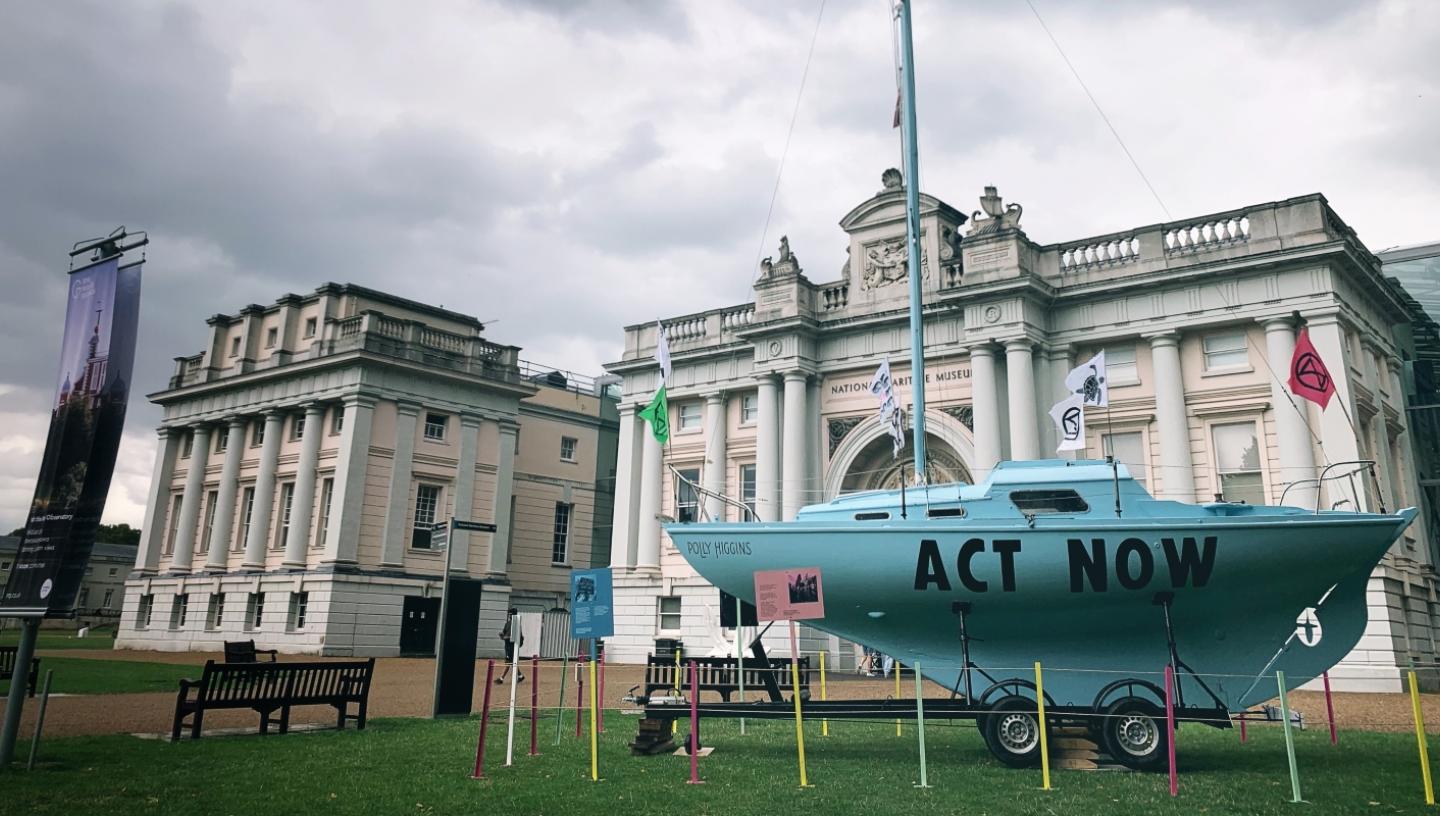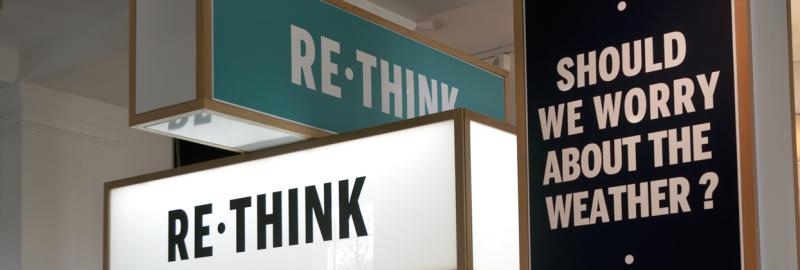
Our strategic business plan, The RMG Plan 2022-2026 – Building Reach, Reputation and Resilience’ makes a commitment to engage with the environmental challenges facing our future and to:
-
Raise the level of consciousness around climate change and sustainable living.
-
Increase the environmental sustainability of our sites and buildings.
-
Ensure our ways of working meet our values around sustainability, integrating our approach to reducing human impact on climate change through all our activities; Be an advocate for change in the museum sector.
This places environmental sustainability at the core of our purpose, as one of the seven key goals and values of our business plan.
It also provides us with three themes for how we will advance sustainability at RMG, and a Sustainability Strategy has been developed to deliver these themes:
1. Raise the level of consciousness around climate change and sustainable living
We will continue to use exhibition and gallery spaces to communicate the challenges of climate change as it relates to Royal Museums Greenwich.
The Oceans Content groups will work up ideas for displays on environmental topics for a rolling programme in our New Insights gallery. In our current exhibition, Our Connection to Water, seven artists share their perceptions of and relationships to water, and consider how it impacts their communities socially, culturally, environmentally, emotionally and spiritually.
We take pride in, and will continue to grow, our annual World Ocean Day event.
We will transparently communicate our sustainability impacts, targets, performance and plans both internally and externally.
2. Increase the environmental sustainability of our sites and buildings
We have set a target to reduce direct carbon emissions by 33% by 2024/25, relative to 2018/19. Total emissions will reduce 58% in the same timeframe.
We will reduce total waste by 15% by 2024/25, relative to 2018/19. We have a policy of zero waste-to-landfill. Any waste that is not recyclable is converted to refuse-derived fuel and burnt to generate energy.
70% of our waste will be recycled by 2024/25. We currently typically recycle around 50% of our waste.
Our fleet of diesel vehicles will be replaced with low or zero emissions vehicles as soon as it is feasible to do so.
Sustainability considerations have been built into the design process since the very start of two major capital development projects currently underway – the redevelopment of the Royal Observatory and the renovation of the Neptune Court roof.
The development of an estate-wide decarbonisation plan is a key part of our sustainability plans. We are exploring options for decarbonising heat as part of our redevelopment plans for the Royal Observatory, and we have commissioned a feasibility study for our collections centre in Kidbrooke. Cutty Sark is already fully electric, with no gas heating.
We have been involved in early discussions for a local district heating network. However the progress of this project is out of our hands and may not come to fruition this decade.
Our energy demand is greatly influenced by the temperature and humidity conditions we are required to maintain in our gallery and archive spaces. We will work with the cultural sector to challenge accepted norms and move away from restrictive and energy intensive environmental parameters.
3. Integrating our approach to climate change through all our activities
We are developing a sustainability management system, following the approach of ISO14001, to provide a framework for delivering our sustainability goals. This will see the development of defined procedures and processes for integrating sustainability throughout all roles and activities.
We have formally defined the roles of our Environmental Champions and the strategic purpose of our Sustainability Group. These two forums will be used to develop and communicate our sustainability strategy.
We have improved the accuracy and completeness of the data we use for monitoring and reporting our sustainability impacts, but are committed to doing better. We can monitor all impacts over which we have direct control and will seek to expand the data available for impacts we can only influence.
We do not yet have a full picture of the impact of our indirect Scope 3 carbon emissions. In large part, this refers to the environmental impact of our supply chain and we are committed to engaging with our suppliers and contractors to establish the carbon emissions of our work with them.
We will provide training and guidance to our staff to empower them to make sustainable choices in the day-to-day work.
We will incorporate sustainability criteria into procurement processes and, where appropriate, develop minimum standards for the specification of key products and services.
Any questions or feedback about sustainability at RMG can be sent to sustainability@rmg.co.uk


